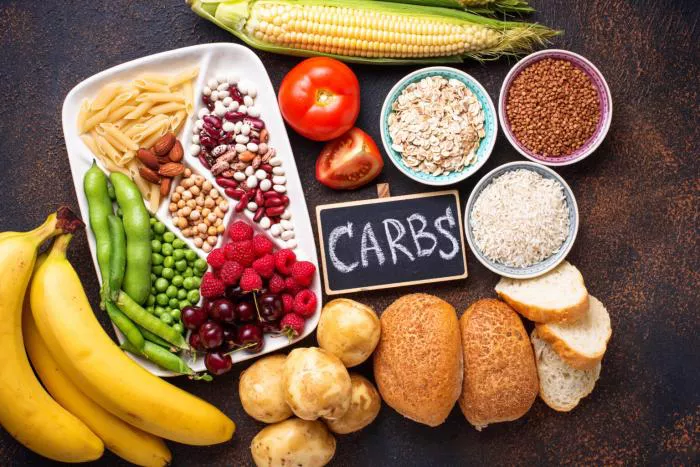Breastfeeding mothers often focus on their diet to ensure they are giving their baby the best nutrition possible. One question that arises frequently is whether following a low-carb diet is safe during breastfeeding. This article explores the topic in depth to provide a better understanding of its benefits, risks, and practical tips.
What Is a Low-Carb Diet?
A low-carb diet involves reducing carbohydrate intake while increasing protein and fat consumption. Common foods on this diet include meat, fish, eggs, vegetables, nuts, and healthy fats. Carbohydrates such as bread, pasta, sugary foods, and starchy vegetables are limited.
Low-carb diets are popular for weight loss and blood sugar control. However, they can vary in strictness. Some diets limit carbohydrates to 20 grams per day, while others allow up to 100 grams.
Nutritional Needs While Breastfeeding
Breastfeeding requires extra calories to produce milk. On average, breastfeeding mothers need about 450–500 extra calories per day. These calories should come from nutrient-dense foods to support both the mother’s energy and the baby’s growth.
Breast milk is primarily made up of water, fats, carbohydrates, and proteins. Carbohydrates are essential for milk production. Therefore, reducing carbs too drastically may affect milk supply.
Is Low Carb Safe for Breastfeeding Mothers?
Following a moderate low-carb diet can be safe while breastfeeding, but extreme carb restriction may lead to issues.
Risks of a Strict Low-Carb Diet
Low Milk Supply
Carbohydrates are a primary energy source for the body. Reducing them too much can lower milk supply. Breast milk production relies on energy from carbs, fats, and proteins.
Nutrient Deficiency
Breastfeeding mothers need a variety of nutrients, including vitamins and minerals. Eliminating whole food groups can lead to deficiencies that affect both the mother and baby.
Keto Flu
Severe carb restriction can push the body into ketosis. While this may promote fat loss, it can cause side effects like fatigue, headaches, and dizziness. These symptoms may impact a mother’s ability to care for her baby.
Dehydration
Low-carb diets often lead to water loss in the initial stages. Breastfeeding already increases the need for hydration, and this combination can lead to dehydration.
Benefits of a Moderate Low-Carb Diet
Weight Management
Breastfeeding mothers often aim to return to their pre-pregnancy weight. A low-carb diet, if done moderately, may help with gradual weight loss without compromising milk production.
Stable Blood Sugar
Reducing refined carbs and sugar can help stabilize blood sugar levels. This can improve energy and mood, which are crucial for new mothers.
Improved Food Choices
A low-carb approach encourages eating whole, nutrient-dense foods. Vegetables, lean proteins, and healthy fats support overall health and milk quality.
How to Safely Follow a Low-Carb Diet While Breastfeeding
Choose a Moderate Approach
Instead of extreme carb restriction, aim for a balanced approach. Consuming 50–150 grams of carbohydrates per day can help maintain milk supply while still reducing carb intake.
Focus on Nutrient-Dense Foods
Include foods that provide essential nutrients. Examples include:
Vegetables: Broccoli, spinach, zucchini, and bell peppers
Fruits: Berries, apples, and oranges (in moderation)
Whole Grains: Quinoa, oats, and brown rice
Healthy Fats: Avocados, olive oil, and nuts
Proteins: Chicken, fish, eggs, and legumes
Stay Hydrated
Breastfeeding mothers need more fluids. Drink plenty of water to avoid dehydration. Herbal teas and broths can also help.
Monitor Your Milk Supply
Pay attention to your baby’s feeding patterns and weight gain. If your milk supply decreases, consider increasing your carbohydrate intake slightly.
Listen to Your Body
Breastfeeding is demanding on your body. If you feel fatigued, dizzy, or notice other negative symptoms, reassess your diet. A healthcare provider can guide you in making adjustments.
Alternatives to Low-Carb Diets
If weight loss or health improvement is your goal, there are other approaches to consider.
Balanced Diet
A balanced diet includes a variety of whole foods, including carbs, proteins, and fats. It provides all the nutrients needed for breastfeeding.
Mediterranean Diet
The Mediterranean diet focuses on healthy fats, lean proteins, whole grains, and vegetables. It is rich in nutrients and supports overall health.
Portion Control
Instead of restricting certain food groups, focus on portion sizes and mindful eating.
When to Avoid Low-Carb Diets
Some situations require extra caution. Avoid low-carb diets if:
- Your baby is underweight or not gaining enough.
- You have a history of low milk supply.
- You experience fatigue or dizziness while breastfeeding.
- Your healthcare provider advises against it.
Consult a Healthcare Professional
Before starting a low-carb diet while breastfeeding, consult a doctor or a registered dietitian. They can provide personalized guidance based on your health, breastfeeding needs, and goals.
Final Thoughts
A low-carb diet can be done while breastfeeding, but it requires moderation and careful planning. Extreme carb restriction can affect milk supply and nutrient intake, which may harm both mother and baby.
Focus on a balanced approach that prioritizes nutrient-dense foods and adequate hydration. Always monitor your body’s signals and consult a healthcare professional for advice. With the right strategy, you can support your health and your baby’s growth effectively.
Related topics:


